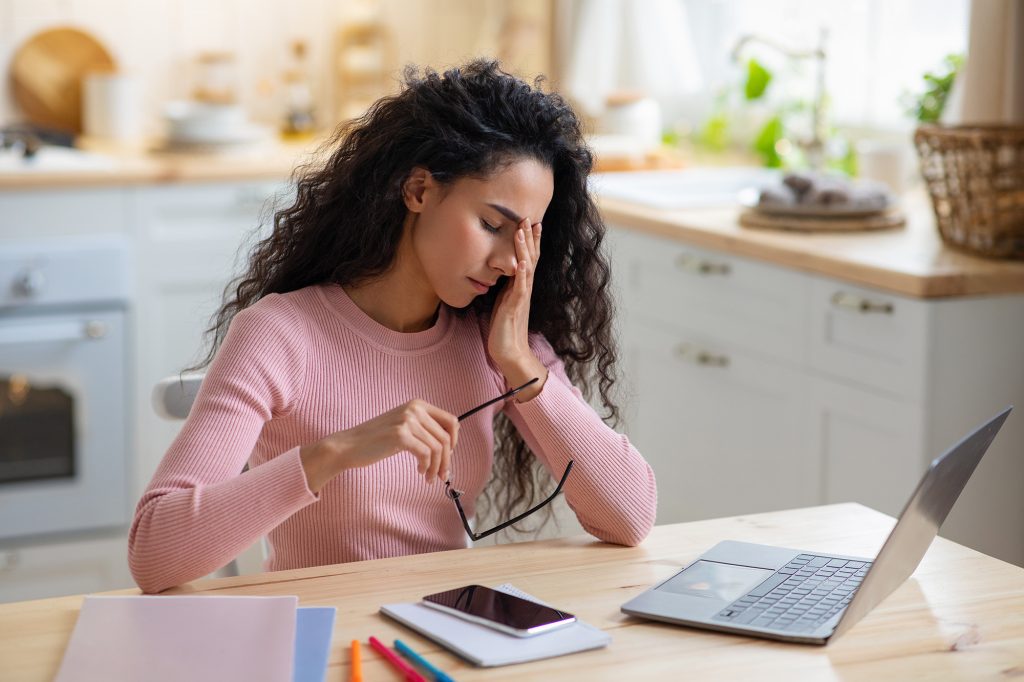Eye Strain No More! Simple Tips to Relieve Digital Eye Fatigue!
In today’s digitally dominated age, how many times have you caught yourself blinking away dryness after staring at a screen for hours? It’s called digital eye fatigue, and it’s a condition that is affecting an increasing number of us. From work to leisure, our lives are intertwined with screens, and it’s crucial we recognize the effects this has on our eyes. But don’t worry! By being proactive, you can significantly alleviate this modern-day discomfort.
To truly understand the root of the problem, we need a quick science refresher. When we stare at screens, our blink rate reduces. This, coupled with the short distance between our eyes and the screen, forces our eye muscles to work overtime. Unlike perusing a magazine or admiring nature, screen viewing requires our eyes to continuously focus and refocus, causing strain.

A friend of mine once quipped after a long day of virtual meetings, “My eyes feel like they’ve run a marathon!” Perhaps you’ve felt the same. Common signs include dry or watery eyes, blurred vision, and even headaches. If you find yourself squinting at the screen or rubbing your temples, it’s time to take note.
Ways to Reduce Digital Eye Strain
Fortunately, there are plenty of measures to mitigate this fatigue:
The 20-20-20 Rule: This is my personal favorite. Every 20 minutes, I make it a point to gaze outside my window, focusing on a tree roughly 20 feet away for 20 seconds. It’s a refreshing mini-break!
Proper Screen Position and Posture: Ensure that your screen’s top is at or just below eye level. Also, sit back in your chair—your eyes will thank you!
Reduce Glare: Remember when Jane from accounting kept complaining about the office lights? She had a point! Using screen protectors or repositioning your device can help reduce reflections.
Adjust Screen Brightness and Contrast: A simple setting change to match your room’s brightness can make a world of difference.
Use Computer Glasses: My colleague swears by his blue light glasses. They’re designed to optimize your vision for screen viewing.
Blink More Often: It might sound silly, but setting a reminder to blink can be beneficial.
Adjust Font Size: I’ve increased my text size, and not only has it been gentler on my eyes, but it’s also improved my reading speed!
Stay Hydrated: A bottle of water at your desk is not just for thirst, but for your eyes too!
Eye Exercises: Rolling your eyes isn’t just for showing annoyance—it can also be an excellent exercise to relax your eye muscles.
Regular Eye Check-ups: Never underestimate the power of a professional opinion. Regular visits to the optometrist can preemptively address potential issues.
Beyond Screen Time: Environment Matters
Natural light can be an eye’s best friend. I’ve repositioned my workspace closer to a window, and it’s made a massive difference in reducing strain. Moreover, opt for softer, ambient lighting in your room rather than harsh overhead lights.
The Role of Diet and Supplements in Eye Health
Did you know that what you eat can affect your eye health? Incorporate foods rich in Omega-3 fatty acids, Vitamin C, and Vitamin E. Also, considering our busy lives, hydration can often take a backseat—keeping hydrated aids in tear production and eye lubrication.
In this modern age, avoiding screens is nearly impossible. But with the right strategies in place, we can make our digital interactions much more comfortable. Let’s ensure our eyes remain relaxed and healthy amidst our digital routines.
Remember Eye Fatigue can also be a symptom of either needing glasses or that your current glasses are in need of an updated prescription. To be on the safe side make sure your eyes have a regular check up from your Optometrist.